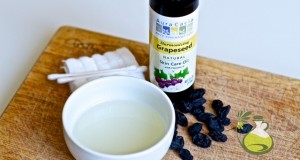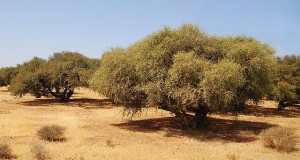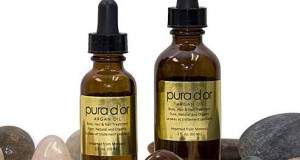
Is it true or false: does coconut oil clog pores? Coconut oil and its effect on skin have been a controversial question for quite a period of time. While some people claim it has miraculous effect on the skin, others state their condition got worse and coconut oil should be avoided. So what is the truth behind these statements and what effect does coconut oil have on our pores and acne, if any?
Contents
A bit of biology
In order to find out how exactly coconut oil works on our skin and acne, it is important to understand what causes this condition and what can improve or worsen it. Acne is a common and widespread skin disease which is usually presented by skin inflammation and redness, whiteheads, blackheads and pimples. When hormonal system is overactive, too much skin oil is produced, which, together with dead skin cells, clog skin pores and result in acne.

SEE ALSO: Coconut Oil as a Sunscreen?
Coconut oil-skin relationship
Now that we got a bit of understanding in acne background, it’s time to move on to the next topic, which is the relationship between coconut oil and skin and the effects observed after application of this product.
Without doubt, coconut oil has a number of beneficial effects on your skin due to its properties and nutrition value. Here are some of the examples what coconut oil is capable of:
Emollient product
Due to high fat content, coconut oil has smoothing and softening effect on the skin, reducing dryness and itching.
Antiseptic and anti fungal
Coconut oil is a unique product as it contains MCFAs-medium chain fatty acids. These acids have antibacterial and antifungal features, so coconut oil eliminates bacteria present in your skin and can be used in treating a number of conditions (e.g. psoriasis). Use it together with tea tree oil for psoriasis treatment.
Antioxidant
The content of coconut oil includes antioxidants that fight free radicals, thus smoothing the skin, decreasing and eliminating wrinkles and therefore, making the skin healthier and younger.
This was just a brief overview of some of the benefits coconut oil has to offer to our skin. And now it is time to ask a reasonable question: if it is so good, what is the trick then?
SEE ALSO: Ever Wondered What Coconut Oil Brand Is The Best?..
Mystery solved
 Coconut oil is a comedogenic product. That means it has tendency to clog pores. So how does it work then, if some people can use it as acne treatment and others only suffer from it? The answer is simple: we are all different.
Coconut oil is a comedogenic product. That means it has tendency to clog pores. So how does it work then, if some people can use it as acne treatment and others only suffer from it? The answer is simple: we are all different.
The trick here is our skin type. It is obvious that big pores will have much more tendency to get clogged rather than small ones. So if you have oily skin and blackheads, it most probably means your skin pores are quite big, and therefore, coconut oil may worsen your condition. Now, important thing here to remember is that coconut oil does not cause acne and does not clog the pores all alone. It rather adds to already clogged pores, worsening the condition, but it does not cause it. And since coconut oil is rich in fats, it has to be used moderately and wisely even for skin with small pores, as excessive usage will not benefit your skin, but rather contribute to the development of some skin condition.
Summary
Before using coconut oil as acne treatment, it is recommended that first you find out your skin type and estimate whether it will be safe and beneficial. Coconut oil is a great natural product to use, but unfortunately, its effects are individual for every person and the only possible suggestion is to try experimenting whether coconut oil is suitable for you by applying small amount on your skin and viewing the result afterwards. As well do not forget to consult a specialist in order to be sure about your treatment plan and to achieve good results in fighting acne.
FREE BOTTLE OFFER - Revitol Pore Minimizer is the ultimate quick fix for flawless, photo-ready skin.
 Oilypedia.com – Benefits And Uses Of Supplemental and Essential Oils
Oilypedia.com – Benefits And Uses Of Supplemental and Essential Oils 



Pingback: Kokosų aliejaus išskirtinės savybės. Nepriklausomas tyrimas | Viktorijos Namai